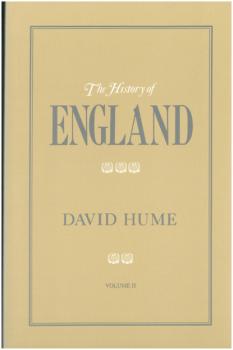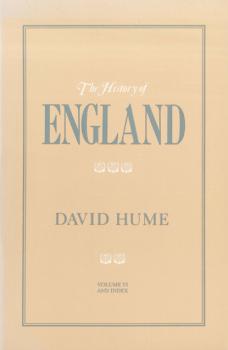ТОП просматриваемых книг сайта:















Ingram
Все книги издательства IngramАннотация
Roscoe Pound, former dean of Harvard Law School, delivered a series of lectures at the University of Calcutta in 1948. In these lectures, he criticized virtually every modern mode of interpreting the law because he believed the administration of justice had lost its grounding and recourse to enduring ideals.Now published in the U.S. for the first time, Pound’s lectures are collected in Liberty Fund’s The Ideal Element in Law, Pound’s most important contribution to the relationship between law and liberty.The Ideal Element in Law was a radical book for its time and is just as meaningful today as when Pound’s lectures were first delivered. Pound’s view of the welfare state as a means of expanding government power over the individual speaks to the front-page issues of the new millennium as clearly as it did to America in the mid-twentieth century.Pound argues that the theme of justice grounded in enduring ideals is critical for America. He views American courts as relying on sociological theories, political ends, or other objectives, and in so doing, divorcing the practice of law from the rule of law and the rule of law from the enduring ideal of law itself.Roscoe Pound is universally recognized as one of the most important legal minds of the early twentieth century. Considered by many to be the dean of American jurisprudence, Pound was a former Justice of the Supreme Court of Nebraska and served as dean of Harvard Law School from 1916 to 1936. Please note: This title is available as an ebook for purchase on Amazon, Barnes and Noble, and iTunes.
Аннотация
Renowned for his Civilization of the Renaissance in Italy and Reflections on History, Jacob Burckhardt (1818–1897) has well been described as “the most civilized historian of the nineteenth century.” JuEAments on History and Historians consists of records collected by Emil Dürr from Burckhardt’s lecture notes for history courses at the University of Basel from 1865 to 1885. The 149 brief sections span five eras: Antiquity, the Middle Ages, History from 1450 to 1598, the History of the Seventeenth and Eighteenth Centuries, and the Age of Revolution.
Аннотация
In his famous Reflections on the Revolution in France (1790), Edmund Burke excoriated French revolutionary leaders for recklessly destroying France’s venerable institutions and way of life. But his war against the French intelligentsia did not end there, and Burke continued to take pen in hand against the Jacobins until his death in 1797.This collection brings together for the first time in unabriEAed form Burke’s writings on the French Revolution that anticipate, refine, and summarize the works in his famous Reflections on the Revolution in France. There are seven items in the collection. Included are “Letter to a Member of the National Assembly,” “Appeal from the New to the Old Whigs,” and “A Letter to a Noble Lord.” A foreword and headnotes to each selection point the reader to some of the key issues.Daniel E. Ritchie is Professor of English Literature at Bethel College. Please note: This title is available as an ebook for purchase on Amazon, Barnes and Noble, and iTunes.
Lectures on the Relation between Law and Public Opinion in England during the Nineteenth Century - A. V. Dicey
Аннотация
This volume brings together a series of lectures A. V. Dicey first gave at Harvard Law School on the influence of public opinion in England during the nineteenth century and its impact on legislation. Dicey’s lectures were accurate as a reflection of the anxieties felt by turn-of-the-century Benthamite Liberals in the face of Socialist and New Liberal challenges.A. V. Dicey (1835–1922) was an English jurist, Vinerian Professor of English Law at Oxford University, and author of, among other works, The Law of the Constitution.Richard VandeWetering is Assistant Professor of Political Science at the University of Western Ontario. Please note: This title is available as an ebook for purchase on Amazon, Barnes and Noble, and iTunes.
Аннотация
Alexander Hamilton, trusted military aide and secretary to General George Washington, wrote to persuade. He had the ability to clarify the complex issues of his time without oversimplifying them. From the basic core values established in his earlier writings to the more assertive vision of government in his mature work, we see how Hamilton’s thought responded to the emerging nation and how the nation was shaped by his ideas. This comprehensive collection of his early writings, from the period before and during the Revolutionary War, provides a fuller understanding of the development of his thinking.Richard B. Vernier is Adjunct Professor of American History at Purdue University at Calumet.Joyce Appleby is Professor Emerita of History at UCLA. Please note: This title is available as an ebook for purchase on Amazon, Barnes and Noble, and iTunes.
Philosophiae Moralis Institutio Compendiaria, with A Short Introduction to Moral Philosophy - Francis Hutcheson
Natural Law and Enlightenment ClassicsАннотация
In this new, dual-language edition, Hutcheson’s Latin Philosophiae Moralis Institutio Compendiaria is presented on facing pages with its English translation, A Short Introduction to Moral Philosophy, together with all the relevant alterations of the 1745 edition relating to the 1742 edition of the Institutio, including all the omissions and additions by the translator in the Short Introduction.Francis Hutcheson (1694–1746) was educated at the University of Glasgow, where he assumed the chair of moral philosophy in 1729.Luigi Turco is Professor of Philosophy at the University of Bologna. Please note: This title is available as an ebook for purchase on Amazon, Barnes and Noble, and iTunes.
Аннотация
William Leggett (1801–1839) was the intellectual leader of the laissez-faire wing of Jacksonian democracy. His diverse writings applied the principle of equal rights to liberty and property. These editorials maintain a historical and contemporary relevance.Lawrence H. White is Professor of Economics at the University of Georgia. Please note: This title is available as an ebook for purchase on Amazon, Barnes and Noble, and iTunes.
Аннотация
First published in 1895, Sir Frederick Pollock and Frederic William Maitland’s legal classic The History of English Law before the Time of Edward I expanded the work of Sir Edward Coke and William Blackstone by exploring the origins of key aspects of English common law and society and with them the development of individual rights as these were gradually carved out from the authority of the Crown and the Church. Although it has been more than a century since its initial publication, Pollock and Maitland’s work is still considered an accessible and useful foundational reference for scholars of medieval English law.Volume one begins with an examination of Anglo-Saxon law, goes on to consider the changes in law introduced by the Normans, then moves to the twelfth-century “Age of Glanvill,” with the first great compilation of English laws and customs, followed by the thirteenth-century “Age of Bracton,” author of another major treatise on the same subject. Volume two takes up different areas of English law topic by topic, or as its authors labeled it, “The Doctrines of English Law in the Early Middle Ages.” They consider land tenure, marriage and wardship, fealty, the ranks of men both free and unfree, aliens, Jews, excommunicates, women, and the churches and the King, before turning to the various jurisdictions of that decentralized era.The History of English Law before the Time of Edward I helps readers explore the origins of English legal exceptionalism and through the English tradition the basis of the law of America, Canada, Australia, and other nations. This work is of interest to legal scholars, historians of the Middle Ages, political scientists, political philosophers, and all those interested in Anglo-Saxon law and early law and society.Please note: This title is available as an ebook for purchase on Amazon, Barnes and Noble, and iTunes.
Аннотация
Volume II covers the tumultous period from Henry III through Edward V and Richard III, including the War of the Roses, the struggle between the Houses of York and of Lancaster for the throne.
Аннотация
Volume VI discusses the Commonwealth established by Oliver Cromwell, the Stuart Restoration, making Charles II king, succeeded by his brother, James II, the abdication of James, and Parliament's offer of the Act of Settlement, and the accession of William and Mary.










